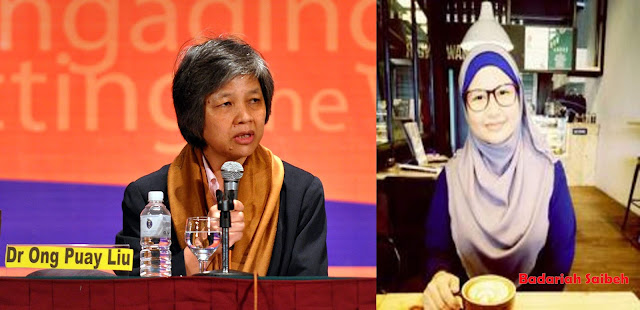Kempen mengibar Jalur Gemilang' atau sebenarnya 'Kempen mengibar Jalur Penjajah?
Saya Mosses PA Ampang selaku Aktivis yang menganggotai Pertubuhan berdaftar Sabah Sarawak Rights-Australia New Zealand (SSRANZ) dan juga Sabah Sarawak Union-UK (SSU-UK) ingin memberikan kenyataan rasmi terhadap tindakan pemimpn-pemimpin tempatan termasuk Kerajaan Negara Sabah yang telah memperlihatkan usaha untuk menyesatkan dan memperbodohkan rakyat Negara Sabah tentang 'Hari Kebangsaan Malaysia' pada 31 Ogos bulan ini.
Hari Kemerdekaan Malaya dan kini dipanggil Hari Kemerdekaan/Kebangsaan Malaysia?
Tindakan pihak Kerajaan Negara Sabah yang telah mempromosikan 'Hari Kebangsaan Malaysia' pada 31 Ogos ini adalah sebenarnya bertujuan untuk mengaburi mata dan akal kewarasan rakyat Negara Sabah.
Perubahan 'sebutan' daripada 'Hari Kemerdekaan Malaysia' kepada 'Hari Kebangsaan Malaysia' yang merujuk kepada 'Hari' yang mana 'Persekutuan Tanah Melayu ataupun Malaya' memperolehi Kemerdekaan pada 31 Ogos 1957 adalah untuk mengelakkan ia daripada 'diboikot' oleh rakyat Borneo.
Ini adalah kerana tarikh tersebut TIDAK mempunyai signifikan ataupun kepentingan sejarah kepada rakyat dikedua-dua kepulauan Borneo. Ini juga disebabkan pada waktu Malaya mencapai Kemerdekaannya, Negara Sabah (North Borneo) dan Negara Sarawak masih lagi menjadi Tanah Jajahan British.
Apakah sebenarnya justifikasi ataupun alasan yang menghalalkan perbuatan terkutuk ini?
Mentaliti Terjajah
Setelah 56 tahun Negara Sabah dan Negara Sarawak 'membentuk Malaysia', corak dan daya pemikiran rakyat Negara Sabah dan Negara Sarawak telah 'dimalayanisasikan ataupun dimalaysianisasikan' dengan objektif untuk melemahkan, melunturkan, menghapuskan identiti serta budaya yang unik dan istimewa, yang jelas sungguh jauh berbeza dengan orang-orang di Tanah Melayu. Dengan memiliki mentaliti yang terjajah, ia akan membuatkan rakyat di wilayah yang terjajah ini tertunduk dan mengakui kekuasaan kedaulatan sang penjajah keatas diri mereka! Kesannya, ini menyebabkan rakyat yang terjajah tidak mempunyai kekuatan, semangat dan keberanian untuk bangkit menegakkan hak-hak mereka yang dirampas dan dirobek melalui penguasaan kuasa politik di tanah tumpah darah mereka.
Menyembunyikan Kebenaran
Pemimpin-pemimpin Negara Sabah dan Negara Sarawak dahulunya bersetuju untuk 'membentuk sebuah Negara Baru yang dinamakan Malaysia' yang dianggotai oleh EMPAT buah Negara. Malangnya, lain yang dipinta, lain yang diberikan. Usaha untuk menyembunyikan penipuan akhirnya terbongkar apabila informasi tentang pembentukan Malaysia sebenarnya adalah bertujuan untuk 'meluaskan Tanah Melayu sehingga ke Tanah Borneo'. Rekod di Bangsa-Bangsa Bersatu (UN) membuktikan bahawa Malaysia itu adalah 'Nama Baru' bagi Kerajaan Persekutuan Tanah Melayu ataupun Federation of Malaya. Ia BUKAN SEBUAH NEGARA BARU TETAPI ADALAH NEGARA MALAYA YANG TELAH MENJENAMAKAN DIRI MEREKA!
Penghinaan Bangsa
Tindakan mengibarkan bendera Malaya ataupun Malaysia di Negara Sabah dan Negara Sarawak terutama sekali pada 'Hari Kemerdekaan Malaya/Malaysia sebenarnya adalah merupakan satu PENGHINAAN PENUH kepada rakyat Borneo. Malaya yang kini dikenali sebagai Malaysia telah MENJAJAH anda dan dengan penuh kegembiraan anda telah mengibarkannya? Hasil ekonomi dan kuasa politik anda dipegang oleh sang PENJAJAH dan anda BERSYUKUR?!
Pembangunan ekonomi 'dilembabkan' melalui 'dasar kabotaj' sehingga kos hidup di Negara Sabah dan Negara Sarawak tinggi sehingga mencekik leher dan anda BERSYUKUR?!
Hasil sumber Gas dan Petroleum yang ada di Negara Sabah dan Negara Sarawak untuk dinikmati oleh rakyat tempatan tetapi dikuasai oleh Malaya/Malaysia dan hanya diberikan 'secebis tinggalan keuntungan' anda BERSYUKUR?!
Sedarlah Wahai Bangsa Negara Sabah dan Bangsa Negara Sarawak
Sebenarnya kita mempunyai kemampuan dan jauh lebih baik untuk mentadbir Negara sendiri. Kita memiliki segala-galanya namun kekurangan yang wujud pada masa ini ialah pemilikan Kuasa Kedaulatan, Kuasa Perundangan yang membawa pengertian kepada Kuasa Kemerdekaan telah diikat oleh rantai kuasa penjajahan Malaya atas nama Malaysia. Kunci kepada penyelesaian ini adalah melalui penguasaan Kuasa Politik yang MESTI dipegang sepenuhnya oleh Rakyat Tempatan yang Pro Sabahan and Pro Sarawakian sahaja, yang akan mampu memutuskan rantai kesengsaraan, penghinaan dan penjajahan ini.
Kemampuan kita untuk meramalkan masa depan Negara Sabah dan Negara Sarawak dalam tempoh 10, 50 ataupun 100 tahun daripada sekarang semuanya bergantung kepada tindakan yang kita ambil pada hari ini.
"Tiada masa untuk berdiam kerana masanya telah tiba. Tiada erti untuk berputus asa kerana ini baru bermula. Kuatkanlah hatimu tempuhi cabaran, kita perlu bersatu hati. Perjuangan ini, bebaskan negara dari kuasa peluntur bangsa!"


















